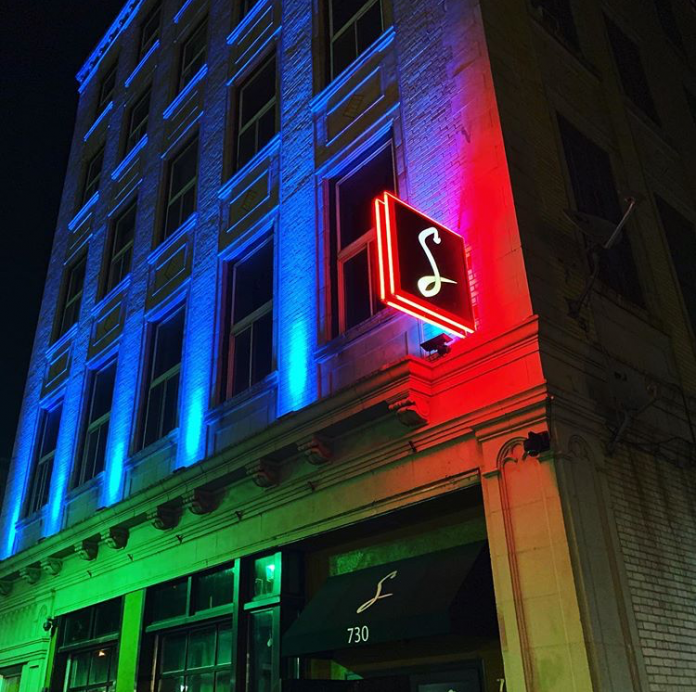Adult nightclubs routinely battle for their very existence. All too often, clubs are denied justice. But every once in awhile, clubs end up in victory lane.
In response to the COVID-19 pandemic’s mass shutdowns and economic impact, Congress passed the Coronavirus Aid, Relief, and Economic Security (CARES) Act. Its Paycheck Protection Program (PPP) directed the Small Business Administration (SBA) to guarantee forgivable loans to businesses with 500 or fewer employees for specific purposes, including payroll.
Despite the PPP’s mission as broad relief for workers, the SBA adopted its historical lending regulations, which excluded businesses that presented or derived income from displays of a “prurient sexual nature.”
Two separate groups — anticipating loan rejections for their clubs because of the prurient nature clause — promptly filed federal lawsuits challenging the disqualifications and seeking emergency injunctive relief. The first was filed by First Amendment attorneys Brad Shafer and Matt Hoffer, on behalf of DV Diamond Club of Flint, a Déjà Vu affiliate.
DV Diamond withdrew its motion after learning its loan would likely be approved. However, word of the suit spread, and 42 additional clubs joined as plaintiffs and renewed the emergency relief request.
Hoffer filed the complaint on a Friday and at a status conference the following Monday, “the government volunteered to set aside funds to guarantee our plaintiffs’ loans,” explains Jacksonville Florida attorney Gary Edinger, who is co-counsel with Shafer and Hoffer on the case.
Generally, the SBA will purchase and forgive the loan if the borrower has used it for specified purposes.

Shortly after the DV Diamond suit was filed, First Amendment attorney Jeff Scott Olson filed suit on behalf of the four Silk Exotic clubs in Wisconsin. The court issued a preliminary injunction, ordering the SBA not to enforce the prurient interest exclusion from PPP loans against his plaintiffs and to issue loan guarantees.
Judge Lynn Adelman, in a 33-page opinion, said the nightclubs had “shown that their inability to obtain a loan through the PPP will prevent them from exercising their First Amendment right to present erotic dance entertainment.”
The government appealed that order to the Seventh Circuit Court of Appeals. The three-judge panel granted a short stay, while considering the motion, but then opened the door to grant loans for the four clubs.
Olson notes how crucial the court’s swift action was to his clients.
“The loans were intended to help businesses survive a financial emergency,” he says. “Unless they come promptly, they’re just another loan.”
Do these two rulings, prohibiting the prurient interest exclusion, have any bearing on the approximately 3,000 adult nightclubs and numerous adult retail stores in the U.S.? Could they still be categorically excluded from the loans?
“Theoretically, yes, but probably not,” says Edinger. “The SBA is one agency, bound by one standard. While the injunctions are not nationwide, once the government’s appeals are exhausted, they might have that practical effect.”
Edinger went on to say part of the order prohibits SBA denial of loan forgiveness due to the prurience standard.
“That should benefit our clients and other recipients,” he says. “They’ll have confidence the loans will be forgiven.”
While adult businesses have never been able to secure traditional SBA 7(a) loans due to the prurient interest exception, the question then becomes do these court rulings possibly open the door to overturning that roadblock?
“Judge Leitman’s decision for these plaintiffs in this situation was as purposely narrow as possible,” notes Hoffer. “He deliberately didn’t issue a broad ruling. He was very emphatic that the PPP is something exceptional. His analysis won’t necessarily do anything outside of the CARES Act. Could aspects of his opinion help challenge traditional SBA loan restrictions? Yes, but Leitman’s order won’t take you all the way there.”
Edinger points out Judge Adelman’s order in Wisconsin is different than Leitman’s.
“(Adelman’s order) found PPP loan denial, based on prurient sexual material, violates the First Amendment,” says Edinger. So that took it head-on. If that order stands, I believe prurient interest will fall for the 7(a) loans, which would open up SBA loans for adult businesses.”
Judge Leitman’s decision for these plaintiffs in this situation was as purposely narrow as possible. He deliberately didn’t issue a broad ruling. He was very emphatic that the PPP is something exceptional. His analysis won’t necessarily do anything outside of the CARES Act. Could aspects of his opinion help challenge traditional SBA loan restrictions? Yes, but Leitman’s order won’t take you all the way there. — Matt Hoffer
With 43 plaintiffs and over $10,000,000 at stake in the DV Diamond suit and formidable opposing counsel from the Justice Department — amid the backdrop of working around the pandemic — this case was remarkable even by First Amendment cases, which are typically time-consuming.
“We’re no strangers to working long hard hours when situations dictate,” explains Hoffer. “But this case tops the list of fire drills we’ve done. We’ve maintained a frenetic pace most of the waking hours for several weeks straight as it unfolded.”
“The lift has been so extraordinary, largely because of the ridiculous time frame,” echoes Edinger. “It hasn’t let up. Because the government immediately appealed and asked for a stay, which could have devastated our plaintiffs because the PPP money could have been exhausted. The SBA’s guaranteeing capacity for our clients didn’t assure they would be funded. If the government had gotten a stay before we ultimately won, by the time our plaintiffs got a ruling and were told to get their loans, the lenders could have already closed down their programs.”
Olson also put in extraordinary effort on his case over a shorter time than Shafer, Hoffer, and Edinger due to his court’s time constraints.
“We were very, very fortunate to have the trail-blazing work of lawyers in the Michigan case available to us,” notes Olson. “We would not have been able to do what we did as rapidly as we did it, or probably at all, without their cooperation.”
At the time this article went to press, all of the plaintiff clubs in both lawsuits had been granted PPP loans, the denial of which upon these lawsuits were based. The government appeals of the two decisions are still pending. Even if the government prevailed, which the plaintiff attorneys in both cases see as unlikely, it would not affect the already granted loans.
Larry Kaplan has, for 19 years, been the Legal Correspondent for ED Publications. Mr. Kaplan is a business broker in the sale and purchase of adult nightclubs and adult stores and the Executive Director of the ACE of Michigan adult nightclub state trade association. Contact Larry Kaplan at 313-815-3311 or email larry@kaplanclubsales.com.
Gary Edinger is a Gainesville, Florida based First Amendment attorney and a partner in the Benjamin, Aaronson, Edinger & Patanzo law firm. Call (352) 338-4440 or email gsedinger12@gmail.com.
Matt Hoffer is a Lansing, Michigan based First Amendment attorney and an associate in the Shafer and Associates law firm. Call 517-886-6560 or email matt@bradshaferlaw.com.
Jeff Scott Olson is a Madison, Wisconsin based First Amendment attorney and the principal of the Jeff Scott Olson law firm. Call 608-283-6001 or email jsolson@scofflaw.com.





























